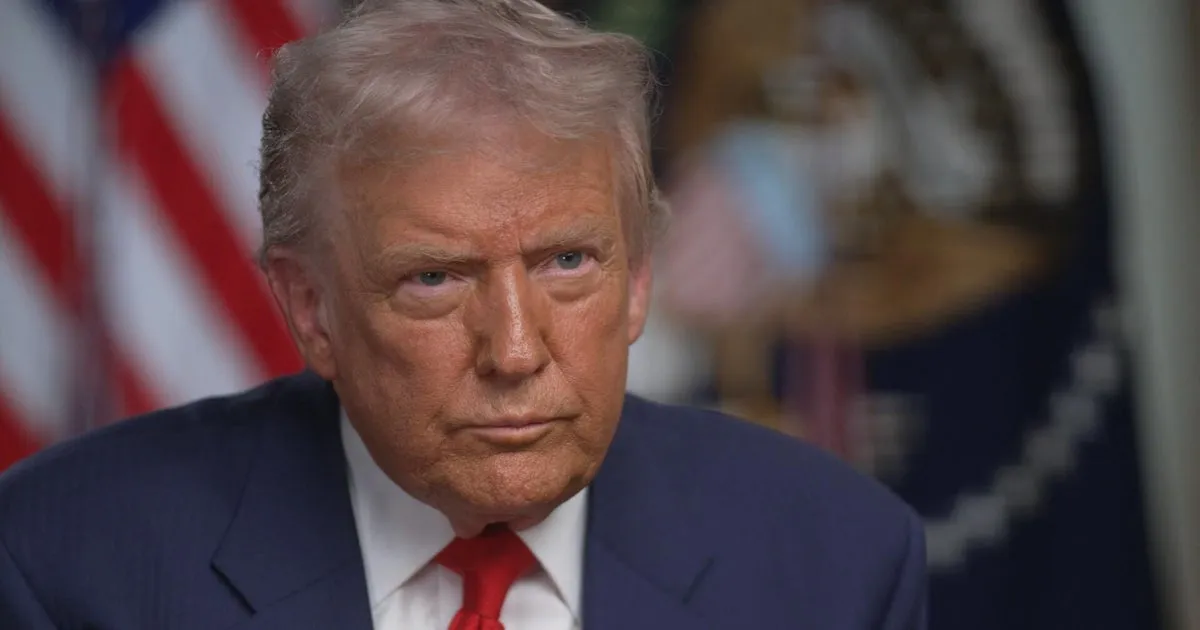
On October 31, 2025, correspondent Norah O'Donnell conducted an in-depth interview with former President Donald J. Trump at his Mar-a-Lago estate in Palm Beach, Florida. The conversation began with the president discussing his recent meeting with China's President Xi Jinping.
Former President Trump emphasized the importance of maintaining a strong relationship with China, stating, "We get along great, and we always really have." He acknowledged the challenges posed by the COVID-19 pandemic but noted that the overall rapport between the two leaders has been beneficial for both countries. Trump referred to Xi as a "powerful man" and expressed confidence in their ability to navigate complex issues together.
When asked about the outcomes of his negotiations with China, Trump asserted, "I got sort of everything that we wanted," highlighting the elimination of the rare earth threat and the influx of revenue from tariffs. He criticized the Biden administration for allowing tariff exemptions that he believed were detrimental to U.S. interests.
O'Donnell raised concerns about the trade war affecting American farmers, particularly soybean producers who had seen a significant decline in sales to China. Trump acknowledged the temporary harm but insisted that the long-term benefits of the tariffs outweighed the immediate issues. He maintained that the tariffs were a critical tool for securing national security and economic growth.
The discussion shifted to the crucial topic of rare earth minerals. Trump reiterated that the U.S. was heavily dependent on China for these materials, which are essential for various industries, from electronics to defense. He confidently stated that within a year and a half, the U.S. would establish its own reliable sources of these minerals through partnerships with countries like Japan and Australia.
Addressing the competitive landscape in the semiconductor industry, O'Donnell questioned whether Trump would permit Nvidia to sell advanced chips to China. Trump firmly declared, "No," emphasizing that controlling advanced semiconductor technology was vital for maintaining a competitive edge in the AI race.
Trump boasted about the U.S. leading the AI sector, asserting that the country was producing energy at unprecedented levels, which would further bolster its technological capabilities. He stated, "We are leading the AI race right now by a lot," showcasing his administration's commitment to advancing American technology.
O'Donnell pointed out that China's long-term strategic thinking contrasts with the U.S. approach, particularly regarding military threats like Taiwan. Trump responded cryptically, indicating that he had communicated clearly with Xi about the consequences of any aggression towards Taiwan, without divulging specific details.
As the interview proceeded, Trump discussed his administration's immigration policies, which he claimed had effectively reduced illegal crossings to a 55-year low. He defended controversial tactics used by ICE, stating that they were necessary to remove dangerous individuals from the country.
Regarding the economy, Trump touted his administration's achievements, including a booming stock market and job creation. He criticized the Biden administration's handling of inflation, insisting that his policies had led to economic stability and growth. "We don't have inflation," he claimed, attributing any recent price increases to previous governance.
Looking towards the future, Trump expressed optimism about the U.S. economy and his vision for rebuilding American cities. He stated, "We're gonna be the king again," referencing his plans to restore manufacturing and industry in the U.S.
Throughout the interview, Trump presented a narrative of strength and resilience, positioning himself as a leader capable of navigating both foreign and domestic challenges effectively. His focus on national security, economic growth, and strong trade relations with China underscored his administration's priorities in a rapidly changing global landscape.